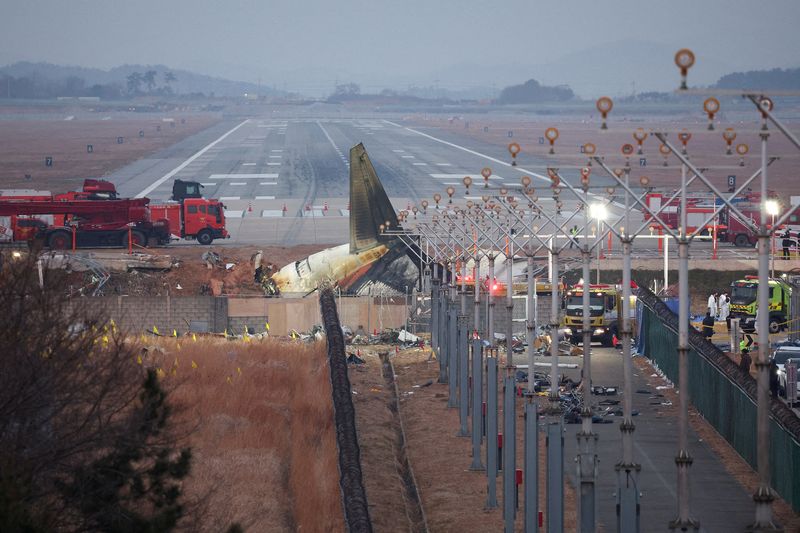By Hyunsu Yim
SEOUL (Reuters) – South Korea's transport ministry said on Wednesday it would remove the concrete embankment installed at Muan International Airport after last month's Jeju Air crash, the deadliest domestic air disaster.
While investigators are still investigating what caused the crash of Jeju Air Flight 7C2216, including reported bird strikes, experts have said the massive berm supporting navigation antennas at the end of the runway likely made the disaster deadlier than it would otherwise be have been.
Trusted news and daily treats, straight to your inbox
See for yourself: The Yodel is the source for daily news, entertainment and feel-good stories.
In some of the first widespread reforms announced since the crash, authorities said they will implement new foundations or other modifications for similar antennas at seven airports, including Muan and Jeju International Airport – one of South Korea's busiest – that are either below ground level or easily accessible. break.
The decision came after assessing the structures that house the antennas that guide landings at airports across the country, known as Instrument Landing Systems (ILS), or a “localizer.”
“Muan International Airport plans to completely remove the existing concrete and reinstall the localizer in a vulnerable structure,” the ministry said in a statement.
The December 29 crash killed 179 people, with only two crew members, who were seated at the back of the Boeing 737-800 plane, surviving.
Video footage showed the passenger plane crashing into the structure and exploding after landing at high speed without its equipment disabled and skidding past the end of the runway.
The runway design has also been criticized for not meeting safety standards, prompting authorities to expand safety zones after the runway that are free of major obstacles.
The Ministry of Transport said it will provide a 240-metre security zone at all airports to comply with all relevant regulations. The area at Muan Airport was about 200 meters long before the crash.
Police said separately that Son Chang-wan, the former president of the state-run Korea Airports Corporation who was in office when the building at Muan Airport was being renovated, was found dead in his home on Tuesday of an apparent suicide.
Son was not under investigation following the plane crash and had not been called for questioning about it, a police official said.
The closure of Muan Airport has been extended until April 18, the Ministry of Transport said on Saturday.
(Reporting by Hyunsu Yim; Editing by Jamie Freed)

